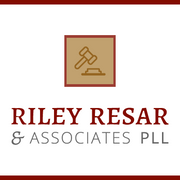
Becoming a legal guardian can be a complex and emotional process, but it is essential for those who want to protect the rights and well-being of vulnerable adults or children. When considering this important life change, it is essential to consult with an attorney who has a background in family law, in your state of residency, for the best possible advice.
A Guide to Guardianship
What is guardianship?
Guardianship is a legal relationship in which a trusted person is appointed to care for another person, known as a "ward". The ward may be a child, or an adult, who is unable to make decisions for themselves. The circumstances for this can vary tremendously. The "guardian" has the legal authority to make decisions on behalf of the ward, including decisions about healthcare, finances, and living arrangements.
What are the types of guardianship?
There are two main types of guardianship: guardianship of the person and guardianship of the estate. Guardianship of the person involves making decisions about the ward's healthcare, education, and living arrangements. Guardianship of the estate involves managing the ward's finances and assets. In some cases, one person may be appointed as both.
What are the legal rights and responsibilities of a guardian?
As a legal guardian, you have the responsibility to act in the best interests of your ward. This means making decisions that promote their health, safety, and well-being. You may also have the responsibility to manage their finances and assets, ensure that their medical needs are met, and arrange for their living arrangements. Guardians are required to file regular reports with the court to ensure that they are fulfilling their duties and that the ward's rights are being protected. They typically have the right to make housing, medical, and end-of-life decisions for their ward, as well as receive confidential information, and file lawsuits on behalf of their ward.
When and how should one file to become a guardian?
The process of becoming a guardian varies depending on the state in which you live. In general, you will need to file a petition with the court and attend a hearing to determine whether you are qualified to be a guardian. You may be required to undergo a background check and provide references to support your application. In the case of guardianship of an adult, the court will also have to determine whether said person is capable of governing themselves, and if a guardian is necessary. It is also important to consult with an attorney who specializes in family law to ensure that you understand your rights and responsibilities as a guardian.
If you are considering becoming a guardian, it is important to seek guidance from a qualified attorney who can help you navigate the legal process. If you are in the Lorain, OH area, Riley, Resar & Associates, P.L.L. can provide the guidance and support you need in family law. Contact them today at (440) 244-5214, or visit their website, to learn more about how they can help you become a legal guardian.
About the Business
Have a question? Ask the experts!
Send your question

